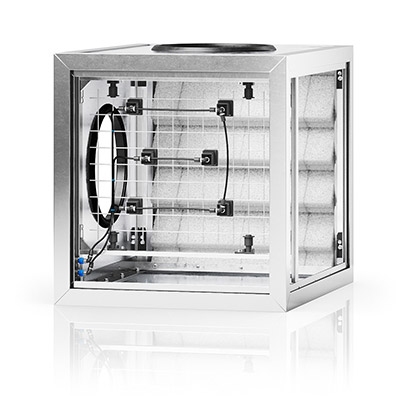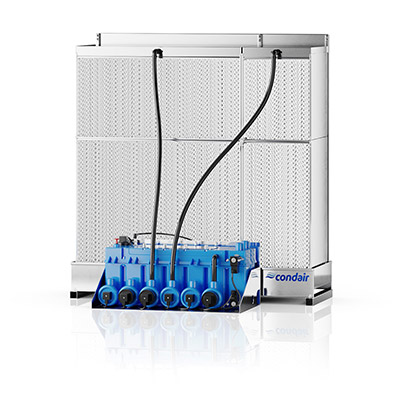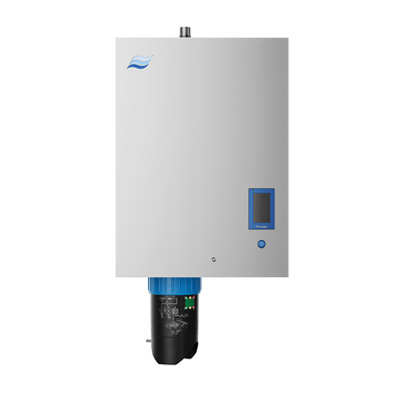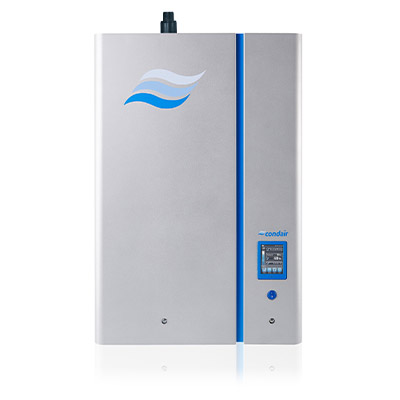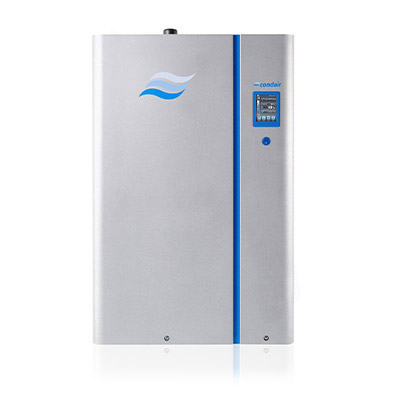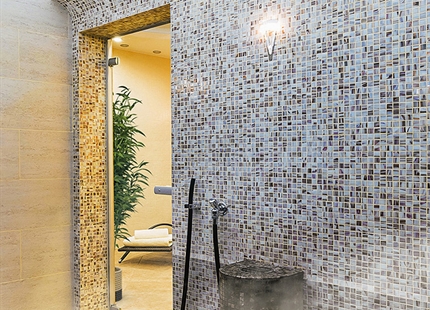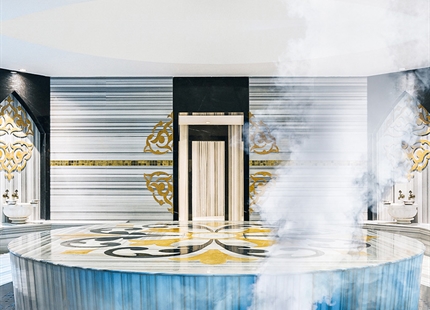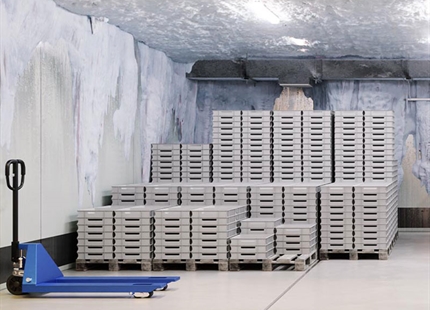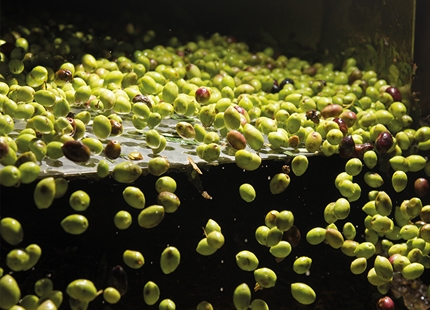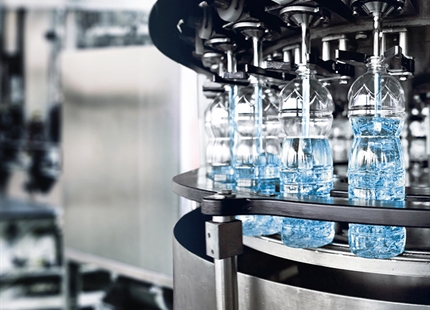Humidification for concert halls
and musical instruments
Pianos and many stringed, plucked and wind instruments are made of precious woods. These are made of “tonewoods” — woods which grow slowly and straight and have particularly good sound properties. Tonewoods are air-dried and stored for many years until all tension in the wood has been released as far as possible. Many different wood types are used, depending on the intended use.
A property that they all share is that they are hygroscopic. They contract when they dry out. When they absorb water, they expand. Therefore, high-value instruments are produced in a climate with monitored air humidity and temperature (depending on the manufacturer, generally at 20–22 degrees Celsius and approx. 40–55% relative air humidity).
The air humidity to which such an instrument is later exposed and how much time it has to adjust has a major influence on its longevity, playability, sound and, last but not least, its appearance. Musical instruments suffer greatly in excessively dry air. Even if a warm instrument comes in contact with cold air, its surface dries out, because it heats the very air which is absorbing its humidity.
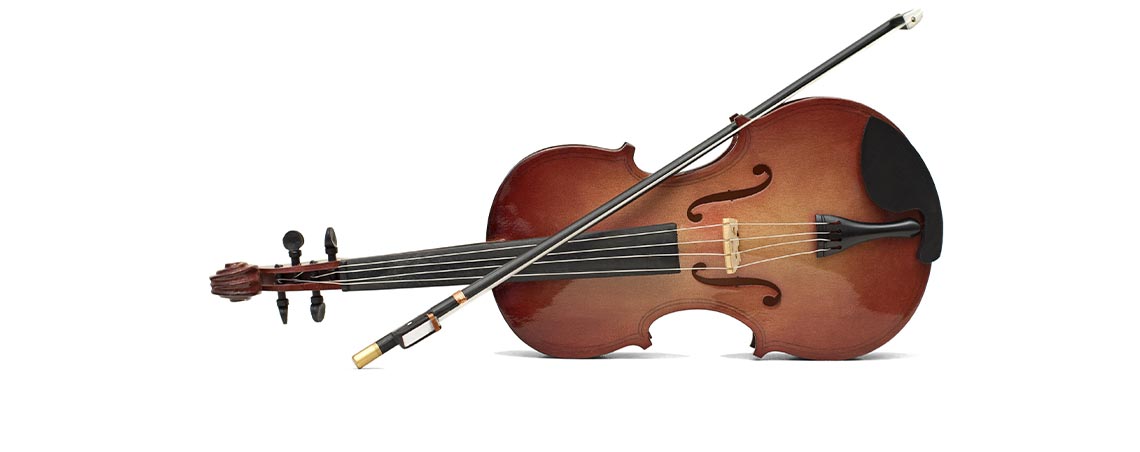
How much air humidity does the body of
a musical instrument need?
Indigenous instruments are often made of the bodies of woody fruits — for instance, a pumpkin. European classical orchestral instruments are often made of very thin woods. Whether it be a violin, guitar or a double bass the finely processed surface of such instruments is often less than 3 mm thick and has a very large surface area.
In some cases, different woods are stuck together, sometimes they are fitted with inlays. The different wood types which are incorporated experience varying degrees of contraction. In specialist jargon, the term “shrinkage” is used.
Beech has a high degree of shrinkage, while that of mahogany is small. The thinner the woods, the more significant their reactions to a change in the climatic ratios. This applies all the more, the higher the value of the instrument. Then it is made of even thinner woods and coated with finer varnishes.

Why concert halls should provide a comfortable room humidity for the visitors
Those who attend performances in operas, theaters and concert halls, or even in churches as a venue for organ or choir concerts, expect to be able to enjoy art with as little disturbance as possible. This includes, among other things, a well-tolerated humidity level that is pleasant for your own physical well-being. A balanced air humidity of between 40 and 60 percent provides optimal conditions for this.
What is important: Especially where many people gather in a small space, insufficient humidity reduces the self-cleaning mechanism of the respiratory tract and weakens the resistance of the immune system against viruses. Here, optimum air humidity provides effective protection for your own health!
Condair quality
Because professional planning is the basis for functional quality and energy efficiency, we are happy to assist you with your project right from the planning phase.
Reference project
Elbphilharmonie, Hamburg
Optimum humidity for the
main concert hall of the Elbphilharmonie

Because professional planning is the foundation for functional quality and energy efficiency, we are happy to assist you with your project right from the planning phase.
Steam bath and steam shower
Nowadays, many hotels and health clubs offer spa facilities for the well-being of their guests and members:
A swimming pool, a sauna and more and mor...
Hammam, Caldarium and Rhassoul
A hamam is a steam bath in which a special bathing ceremony is held,
and is an important part of Islamic bathing and physical culture.
The focus is...
Archives
The preservation, provision and safeguarding of manuscripts, books, graphics, pictures, documents and other works of art and culture are the most imp...
Cold storage
When storing foodstuffs such as meat and sausage products, dairy products, pasta and frozen foods, an optimum ratio between the suitable indoor tempe...
Conveyor technology
Regardless of the industry, high conversion speeds, optimum coordination between the individual elements and, above all, reliable functionality are e...
Confectionery
It is in the nature of things (based on physics) that the production, processing and storage process of confectionery primarily depends on the contin...
Food Industry
Consistent air dehumidification has become an indispensable part of the entire process environment in food production, drying and storage.
Drying sys...
Chemical industry
Whether it is a matter of binding raw materials together permanently, pulverising liquids or preventing potential side effects of reactions in applic...
Beverage Industry
Efficiently controlling humidity throughout the production and storage process environment offers companies in the beverage industry clear added valu...
Call Centers
A good room air humidity in a call center not only ensures the employees’ well-being, but also their performance and health. Today, respiratory illne...




